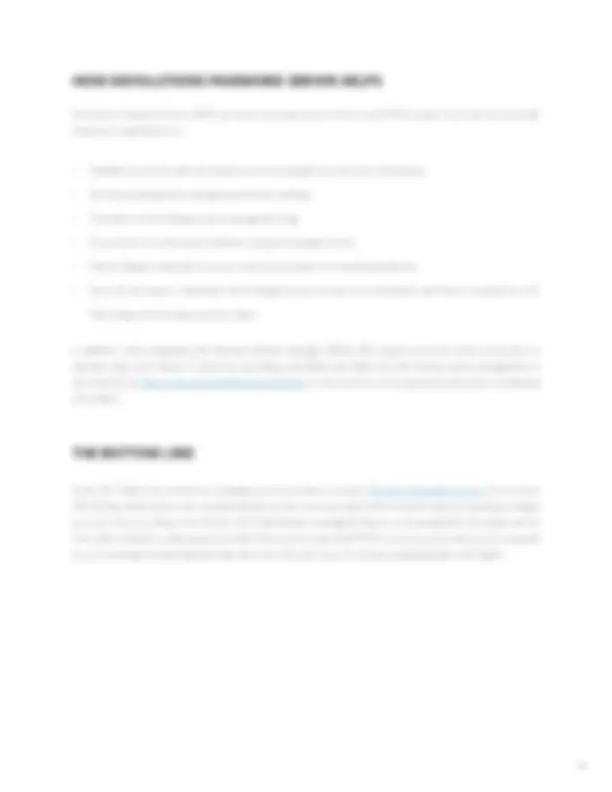




Study with the several resources on Docsity

Earn points by helping other students or get them with a premium plan


Prepare for your exams
Study with the several resources on Docsity

Earn points to download
Earn points by helping other students or get them with a premium plan
Community
Ask the community for help and clear up your study doubts
Discover the best universities in your country according to Docsity users
Free resources
Download our free guides on studying techniques, anxiety management strategies, and thesis advice from Docsity tutors
The principle of least privilege (polp) is a cybersecurity policy that limits user access to only what is necessary to perform their job functions. The concept of polp, its benefits, and best practices for implementation. It also introduces devolutions password server as a tool to help organizations enforce polp.
What you will learn
Typology: Exercises
1 / 4

This page cannot be seen from the preview
Don't miss anything!



The principle of least privilege (POLP) is a policy in which end users are given only the amount of access they need to carry out their jobs — nothing more and nothing less. Understandably, some end users aren’t thrilled with POLP, because once enforced, it means they can no longer access certain non-essential apps, tools and networks. In some cases, it can involve removing interfaces such as USB ports from devices so that end users cannot unintentionally facilitate an infection by copying malware-laden files from a USB drive – or intentionally exfiltrate confidential information by copying it to a USB drive.
However, POLP is not designed to punish end users and make their lives more difficult. Rather, it is meant to minimize the size of the attack surface, and ultimately reduce the likelihood and severity of a cyber attack. This is especially important now that hackers routinely exploit compromised low-level accounts in order to spread laterally across devices and networks, and ultimately access critical systems and sensitive data.
In addition to minimizing the size of the attack surface, POLP offers additional security benefits, including :
Depending on the operating system, POLP can be implemented across one or multiple factors, such as :
Devolutions Password Server (DPS) can be an important piece of the overall POLP puzzle. It securely and centrally empowers organizations to :
At the 2017 Black Hat conference, privileged account solutions company Thycotic conducted a survey of more than 250 self-described hackers who revealed that the number one way to get hold of sensitive data is by hacking privileged accounts. And according to the Verizon 2017 Data Breach Investigation Report, a whopping 81% of breaches derive from stolen, default or weak passwords. Add it all up and it means that POLP is not just a smart idea, but it is essential on an increasingly threatening landscape where the risks and costs of a breach are getting higher and higher.